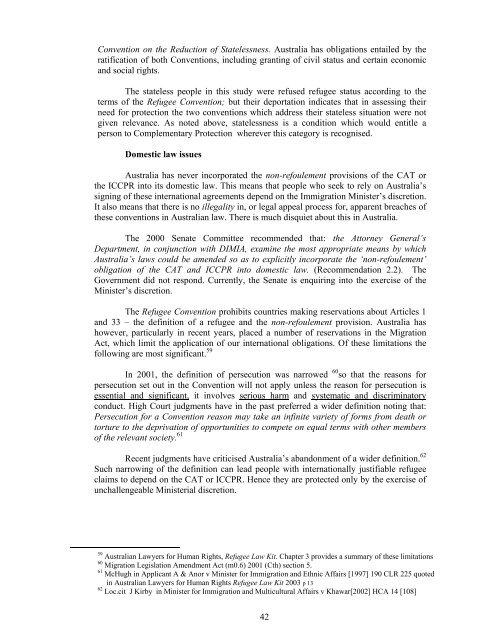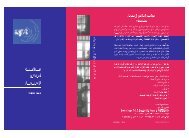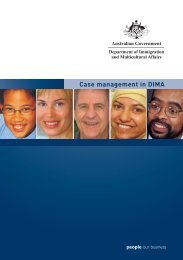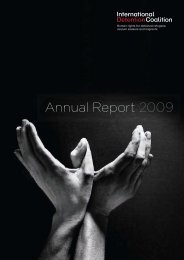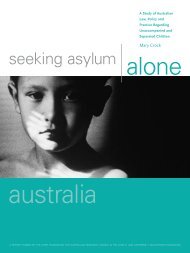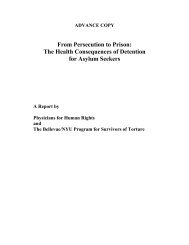DEPORTED TO DANGER - Edmund Rice Centre
DEPORTED TO DANGER - Edmund Rice Centre
DEPORTED TO DANGER - Edmund Rice Centre
You also want an ePaper? Increase the reach of your titles
YUMPU automatically turns print PDFs into web optimized ePapers that Google loves.
Convention on the Reduction of Statelessness. Australia has obligations entailed by theratification of both Conventions, including granting of civil status and certain economicand social rights.The stateless people in this study were refused refugee status according to theterms of the Refugee Convention; but their deportation indicates that in assessing theirneed for protection the two conventions which address their stateless situation were notgiven relevance. As noted above, statelessness is a condition which would entitle aperson to Complementary Protection wherever this category is recognised.Domestic law issuesAustralia has never incorporated the non-refoulement provisions of the CAT orthe ICCPR into its domestic law. This means that people who seek to rely on Australia’ssigning of these international agreements depend on the Immigration Minister’s discretion.It also means that there is no illegality in, or legal appeal process for, apparent breaches ofthese conventions in Australian law. There is much disquiet about this in Australia.The 2000 Senate Committee recommended that: the Attorney General’sDepartment, in conjunction with DIMIA, examine the most appropriate means by whichAustralia’s laws could be amended so as to explicitly incorporate the ‘non-refoulement’obligation of the CAT and ICCPR into domestic law. (Recommendation 2.2). TheGovernment did not respond. Currently, the Senate is enquiring into the exercise of theMinister’s discretion.The Refugee Convention prohibits countries making reservations about Articles 1and 33 – the definition of a refugee and the non-refoulement provision. Australia hashowever, particularly in recent years, placed a number of reservations in the MigrationAct, which limit the application of our international obligations. Of these limitations thefollowing are most significant. 59In 2001, the definition of persecution was narrowed 60 so that the reasons forpersecution set out in the Convention will not apply unless the reason for persecution isessential and significant, it involves serious harm and systematic and discriminatoryconduct. High Court judgments have in the past preferred a wider definition noting that:Persecution for a Convention reason may take an infinite variety of forms from death ortorture to the deprivation of opportunities to compete on equal terms with other membersof the relevant society. 61Recent judgments have criticised Australia’s abandonment of a wider definition. 62Such narrowing of the definition can lead people with internationally justifiable refugeeclaims to depend on the CAT or ICCPR. Hence they are protected only by the exercise ofunchallengeable Ministerial discretion.59 Australian Lawyers for Human Rights, Refugee Law Kit. Chapter 3 provides a summary of these limitations60 Migration Legislation Amendment Act (m0.6) 2001 (Cth) section 5.61 McHugh in Applicant A & Anor v Minister for Immigration and Ethnic Affairs [1997] 190 CLR 225 quotedin Australian Lawyers for Human Rights Refugee Law Kit 2003 p 1362 Loc.cit J Kirby in Minister for Immigration and Multicultural Affairs v Khawar[2002] HCA 14 [108]42


